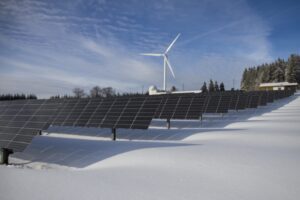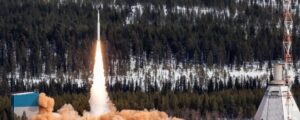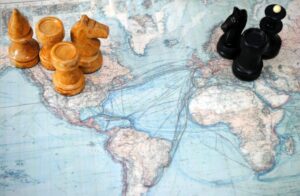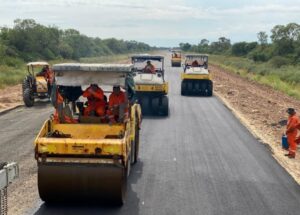- In his term as president, Jair Bolsonaro encouraged the exploration of the Amazon, increasing deforestation and generating international outrage.
- The 2022 Brazilian elections elected former President Lula back to the presidency of Brazil and the politician pledged to prevent the destruction of the Amazon rainforest.
- With Lula’s victory, countries like Norway and Germany will once again invest financially in protecting the Amazon.
In the last 4 years, from 2019 to 2022, Brazil was under the government of Jair Bolsonaro as President of the Republic. Since the beginning of his mandate, the Brazilian image has been gradually altered in the international scenario, due to ideological and government changes at the national and international levels.
In addition to the rupture of the traditional south-south policy – aimed at emerging countries – and the ideological realignment centered on the rapprochement with the United States when it was governed by former President Trump, the change in Bolsonaro’s position in relation to the fight against climate change and the lack of care for the Amazon stood out in a negative way internationally.
However, with the victory of former President Luiz Inácio Lula da Silva in the 2022 elections, Brazil is hopeful of reclaiming its previous international prestige as Lula has pledged to prevent the destruction of the Amazon and to act aggressively against the climate changes.

How Brazil Lost Global Influence During Bolsonaro’s Presidency
Since the beginning of his government, Bolsonaro has encouraged more mining and commercial agriculture in the Amazon, saying he would develop the region economically and help fight poverty in Brazil.
It weakened environmental protection agencies, slashing their budgets and downsizing staff, while making it harder to punish environmental criminals.
According to scientists and environmentalists, their public criticism of conservation efforts has also encouraged illegal loggers, ranchers and miners to clear the forest with less concern for possible punishment.
According to Marco Vieira, research director at the Department of Political Science and International Relations at the University of Birmingham in the United Kingdom, over the decades before the Bolsonaro government, Brazil managed to spread a good image in the international community.
Brazil propagated itself as a country concerned with the environment, pacifist, non-interventionist, capable of dialoguing with diverse actors and defender of multilateral bodies such as the United Nations (UN), for example.
According to Vieira, these characteristics allowed Brazil to develop its soft power, occupy prominent positions in international bodies and acquire economic advantages in trade negotiations with major powers, such as the United States and Europe.
However, throughout the Bolsonaro administration, his new attitudes in foreign policy, social and environmental issues caused estrangement in international forums, doubts among foreign diplomats and discomfort in Brazilian diplomats abroad.
According to Brazilian diplomats interviewed anonymously by BBC News Brasil, the three positions of then-President Jair Bolsonaro that resulted in damage to Brazil’s consolidated reputation in the international diplomatic environment were:
- the attitude towards minorities of the LGBT+ community and indigenous people, especially;
- minimizing the impacts of global warming in their speeches;
- the alignment with Trump’s United States and the sudden rapprochement with Israel, ignoring the historic Brazilian diplomatic tradition of neutrality.
This surprising break with the Brazilian diplomatic tradition generated comments with a tone of concern on the part of representatives from other countries and resulted in the reduction of invitations for Brasília to participate in debates on social and environmental issues.
This position caused a certain isolation for the country internationally, causing economic consequences. As an example, the European Union has conditioned the EU-Mercosur agreement to the Brazilian commitment to environmental protection.
Another significant attitude by Bolsonaro that discredited Brazil internationally was his denialism during the COVID-19 pandemic, ignoring the international scientific consensus that the lack of containment policies against the virus could cause large-scale deaths.
Its sabotage to quarantine during the height of the pandemic and its delay in negotiating and purchasing vaccines, instead of medications without scientific recommendation and proof of effectiveness, led the country to the number of almost 700,000 deaths from COVID-19.
Finally, this sequence of attitudes by Jair Bolsonaro resulted in the sudden decline of Brazilian international prestige and the erosion of its soft power, which until then had been built on a solid foundation of good diplomacy conceived by Barão de Rio Branco, the patron of Brazilian diplomacy.
The international community’s concern with the Amazon during the Bolsonaro years
The policy of Jair Bolsonaro in relation to the Amazon, reported by the Brazilian socio-environmental educator Daniela Silva, who together with her family felt firsthand the consequences of neglecting environmental issues and the Amazonian peoples, generated great concerns among political leaders around the world.
According to the Jungle Lab, since Bolsonaro took office in 2019, at least 825 million tons of CO2 have been released in the deforestation of the Brazilian Amazon. That’s more than is issued by all US passenger cars in a year.
Bolsonaro’s environmental policy — or lack thereof — was so disastrous that the Amazon achieved record deforestation rates in the first half of 2022. In a campaign video, the then-president blasted environmentalists by saying they don’t want to leave Brazil’s indigenous communities. “evolve” or “plant on your land, explore and mine”.
A report by the IPCC (Intergovernmental Panel on Climate Change) notes that the combination of ongoing global warming and accelerated deforestation – encouraged under the Bolsonaro government – could put the Amazon at risk of reaching its tipping point before the end of this century.
According to Timothy Lenton, a scientist at the University of Exeter and co-author of the study, published in Nature Climate Change, if the Amazon reaches this tipping point, the planet will receive significant feedback on global climate change.
The international concern is also shared by many Brazilians such as Raoni Rajão, professor of environmental management and social science studies at the Federal University of Minas Gerais in Brazil, who claims that if Bolsonaro had won the 2022 election, losing the Amazon would have been “guaranteed”.
According to The Washington Post, the violent and lawless deforestation of the Amazon is perhaps the biggest environmental crime in the world and the biggest in history. Another concern of international leaders is that in Brazil, which holds about 60% of the Amazon, almost a fifth of the forests have already been destroyed and practically no one has been held accountable.
How Lula’s election has already reactivated investments to protect the Amazon
On October 30, 2022, most Brazilians elected Luiz Inácio Lula da Silva to be their next president, rejecting the current far-right incumbent, Jair Bolsonaro.
The result of the vote raised environmentalists’ hopes that the Amazon rainforest will be protected from ranchers, illegal loggers and gold miners.
While Bolsonaro has devastated environmental protection agencies and watched a skyrocketing increase in deforestation, Lula’s previous terms as president have witnessed a steady decline in forest clearing.
In his victory speech, Lula pledged to reduce the level of forest destruction in the Brazilian Amazon despite the possible difficulty he will face, given that most legislators are still far-right “Bolsonarists”.
Despite this scenario, the international community is optimistic. The Norwegian Minister of the Environment announced, a day after Lula’s victory, that he will resume financial aid against deforestation in the Amazon in Brazil. Funding has been frozen since 2019, when Bolsonaro took over as president.
A spokesperson for the German Development Ministry, which is also part of the Amazon Found project along with Norway and the Brazilian government, said Berlin is open to unfreezing payments to the project.
While not a politician exempt from corruption allegations in the past, Brazilian climate change policy expert at the Talanoa think tank, Natalie Unterstell says she hopes the Lula administration will set new climate goals after they were reversed by Bolsonaro.
Based on this initiative, it is possible for Brazil to regain its international prestige with a position that aims to protect the Amazon rainforest and that gives due importance to social and climate issues, reversing the economic damage that the opposite policy caused.
How important is the preservation of the Amazon by Brazil in both environmental and geopoliticalterms
Protecting the Amazon is vital to prevent catastrophic climate change due to the large amount of greenhouse gases from global warming that it absorbs, therefore, the increase in deforestation causes an increase in global temperature, due to the greater amount of carbon dioxide (CO2 ) released into the Earth’s atmosphere.
Even though many people around the world don’t know it, the quality of life on planet earth depends on the Amazon, not only to stabilize the regional and global climate, but to obtain food, fresh water, wood, medicines and nutritious rains across the planet.
Furthermore, the geopolitical importance of the Amazon is projected in Brazilian international cooperation, which helps to consolidate the understanding of the causes and consequences of climate change.
At the same time, agreements related to sustainable development are established by world leaders in events such as the United Nations Climate Change Conference (COPs) and the Paris Agreement, for example.
The Amazon region, which holds the largest stock of strategic resources on the planet, becomes the vital space of the 21st century. Thus, a new geopolitical reality is determined for the Amazon region, requiring a greater presence of the State, aiming not only at its economic growth and sustainable development, but also at reaffirming the sovereignty of the region.
From the greater positive insertion of Brazil in the environmental and social issues related to the giant Amazon in the Lula government, the country will have the chance to increase its soft power at a global level and to become an indispensable geopolitical actor in the international community.












Be First to Comment